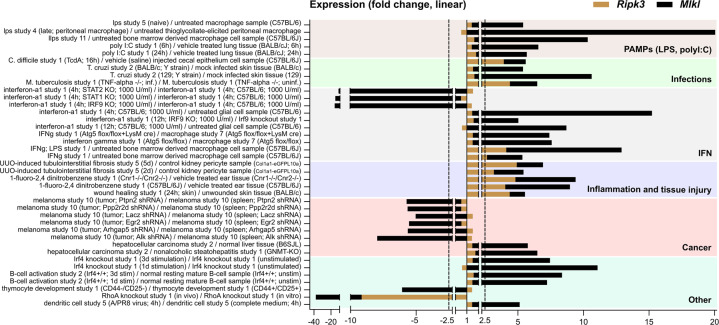Fig. 4. Ripk3 and Mlkl are differentially expressed in tissues during homeostasis and during perturbations.
Overview of all perturbations tested in mouse that result in at least a 5-fold change in mMlkl mRNA levels both up- or downregulation. Data were collected from Genevestigator based on the ‘affymetrix mouse genome 430 2.0 array’ platform. The 2.5-fold change, a fold change considered to be low, is indicated by dotted line. Mlkl mRNA expression is highly inducible in mouse models of infection, inflammation, tissue injury, and cancer. Signals that activate innate immune response including pathogen-associated molecular patterns (PAMPs) such as lipopolysaccharide (LPS, a component of Gram-negative bacteria that activates both TLR4 and inflammasome), infections with parasites, viruses, and bacteria, wound healing as well as chemical-induced inflammation strongly induce Mlkl mRNA expression in various cell types and tissues. Also, IFN signaling induces Mlkl mRNA expression. T. cruzi infection, that activates expression of IFN-stimulated genes through type I IFN receptor (IFNAR1) signaling upregulates Mlkl mRNA [70]. Secondly, IFN-γ-treated BMDMs have increased Mlkl mRNA levels that are even further augmented when treated in combination with LPS, indicating that interferon and TLR/inflammasome signaling operate in synergy to regulate Mlkl mRNA expression. Finally, IFN-regulated transcription factors such as signal transducer and activator of transcription 1 (STAT1), STAT2, and IFN-regulatory factor 9 (IRF9) seem to mediate the induction of Mlkl by IFNα, as respective KOs result in reduced Mlkl mRNA levels. Mice that develop nonalcoholic steatohepatitis (NASH; Gnmt KO mice), have a higher risk to develop hepatocellular carcinoma (HCC). Not only does NASH upregulate Mlkl mRNA expression in the liver, but also HCC further increases its level (up to 7-fold change).

